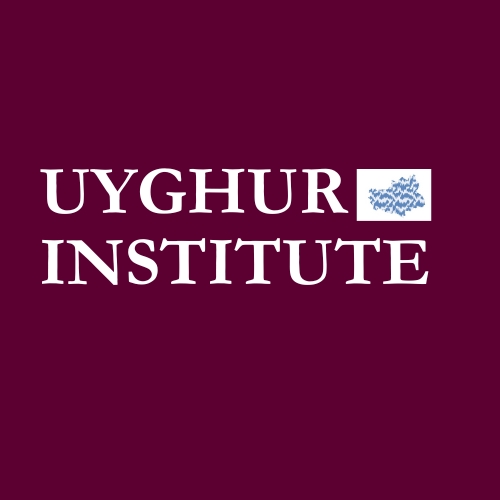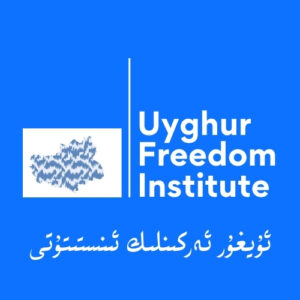
Mission and Vision Statement:
The Uyghur Institute is committed to providing independent and comprehensive research, advocacy, and education on Uyghur studies, encompassing history, culture, language, and human rights. Our mission is to conduct research, offer informed policy recommendations on Uyghur-related issues to policymakers, educate the Uyghur community about their rich heritage and current affairs, and raise international awareness and response to Uyghur freedom plight. Through our research, publications, and events, we aim to support the Uyghur freedom movement, promote human rights, and preserve Uyghur culture. Our diverse programs and resources, including online education, a dedicated library, and an annual conference, serve as platforms for knowledge dissemination and community engagement.”
Organizational Structure:
- Board of Directors:
- Board Chair: Oversees the strategic direction and governance of the institute.
- Executive Director (ED): Manages day-to-day operations, implements board decisions, and represents the institute.
- Policy and Program Director: Develops and oversees policy initiatives and programmatic activities.
- Research Program Director: Coordinates research efforts and academic publications.
- International Outreach Director: Leads efforts to engage with international stakeholders and advocacy.
- Community Engagement Director: Manages relationships with the Uyghur community and public outreach.
- Finance and Funding Director: Oversees financial management and fundraising efforts.
- Communications Director: Manages internal and external communications, including media relations.
- Technical Department Director: Handles IT infrastructure and technical support.
- Uyghur Department Director: Focuses on Uyghur edition of Uyghur institute, Uyghur community outreach, Uyghur language, culture, and educational programs.
Leadership Selection and Tenure
Initial Selection Process:
- Founder’s Choice: The initial round of board members, the Executive Director (ED), and the Board Chair will be selected by the founder.
- Consultation: The founder will consult with experts, Uyghur groups, and consider public opinion to ensure a diverse and representative leadership team.
Term Duration:
- Two-Year Term: Each board member, including the ED and Board Chair, will serve a term of two years.
Subsequent Elections:
- Open Elections: After the initial two-year term, leadership positions will be filled through a public election process.
- Eligibility: Any academic with relevant qualifications and a commitment to the institute’s mission is eligible to participate in the election.
- Transparency: The election process will be made public, allowing members and stakeholders to nominate and vote for candidates.
Policies and Procedures:
HR Policies
Recruitment and membership Process
As we are currently in the early stages of development, our hiring processes are evolving. We aim to develop comprehensive HR policies as our infrastructure, funding, and organizational foundation become stronger. For now, we follow these basic guidelines:
Membership Requirements
- Academic Integrity: Applicants must demonstrate a strong commitment to academic integrity and maintain a proven publication history.
- Professional Qualifications: Candidates should have at least two published academic papers and possess the necessary professional qualifications.
- Commitment to Relevant Fields: Members must be dedicated to Uyghur studies, human rights, diaspora issues, organizational development, and China’s politics.
- Application and Recommendation: Scholars can join the Uyghur Institute by applying directly or through a recommendation by current Uyghur Institute scholars.
- Active Participation: Members should show a willingness to contribute actively to the institute’s subjects and programs.
Employee/Volunteer Conduct Expectations
Our current expectations for employee and volunteer conduct are as follows:
- Adhere to academic and professional standards.
- Respect and follow the mission of the Uyghur Institute.
- Show respect towards fellow members and scholars.
- Contribute to research, policy development, education, programs, and projects of the institute.
- Actively collaborate with members and scholars.
- Maintain transparency in work, research, and personal background.
- Avoid any collaboration with or sharing information with the Chinese government.
- Participate actively in annual meetings, panels, and research proposals.
Communication Guidelines:
Protocols for Internal and External Communications
Internal Communications:
- Transparency and Respect: All internal communications should be conducted with transparency and respect. Members, staff, and volunteers are encouraged to share relevant information openly while respecting confidentiality where necessary.
- Regular Updates: Key updates, decisions, and announcements will be communicated regularly through official channels such as emails, internal newsletters, and meetings.
- Collaborative Tools: Utilize designated collaboration tools (e.g., email, internal messaging platforms, project management software) to ensure efficient and organized communication.
- Meeting Protocols: Agendas for meetings should be shared in advance, and minutes should be documented and distributed promptly to all relevant parties.
External Communications:
- Official Statements: Only authorized individuals (such as the Executive Director or Communications Director) are permitted to issue official statements or speak on behalf of the institute.
- Consistency and Accuracy: All external communications must be consistent with the institute’s mission and values and should be accurate and well-researched.
- Press Releases: Major announcements, events, and publications should be communicated through formal press releases prepared and approved by the Communications Director.
- Media Inquiries: Direct all media inquiries to the Communications Director. Responses should be coordinated to ensure a unified and coherent message.
Social Media Use:
- Official Accounts: Social media accounts representing the Uyghur Institute should be managed by the Communications Director or designated team members. Personal opinions should be clearly distinguished from official statements.
- Content Guidelines: Content shared on social media should align with the institute’s mission, promote its activities, and engage the community positively. Avoid sharing unverified information or engaging in contentious debates.
- Engagement: Engage with followers respectfully and professionally. Promptly address questions, comments, and concerns raised on social media platforms.
- Privacy: Protect the privacy and confidentiality of members, staff, and research subjects in all social media posts. Obtain necessary permissions before sharing personal information or images.
By following these communication protocols, the Uyghur Institute ensures clear, respectful, and effective communication both internally and externally, fostering a professional and cohesive organizational environment.
Membership and Stakeholders:
Rights and Responsibilities of Members
Rights of Members:
- Participation: Members have the right to participate in the activities, events, and programs organized by the Uyghur Institute.
- Access to Resources: Members can access the institute’s resources, including research materials, educational programs, and the dedicated library.
- Voting Rights: Members are entitled to vote in the election of directors, board members, the Executive Director (ED), and the Board Chair.
- Contributions: Members have the right to contribute to the institute’s research, policy recommendations, and educational content.
- Support: Members can seek support for their professional development, including networking opportunities, mentorship, and potential funding for relevant projects.
Responsibilities of Members:
- Adherence to Mission: Members must respect and uphold the mission and vision of the Uyghur Institute.
- Academic and Professional Integrity: Members are expected to maintain high standards of academic and professional integrity in all their work.
- Active Involvement: Members should actively participate in the institute’s activities, including research, events, and community engagement.
- Collaboration: Members are encouraged to collaborate with fellow members and scholars to advance the institute’s objectives.
- Respect and Professional Conduct: Members must treat all other members, staff, and scholars with respect and adhere to the code of conduct.
- Transparency: Members are expected to maintain transparency in their work, research, and personal background.
- Non-Collaboration with Chinese Government: Members must not collaborate with or share information with the Chinese government.
- Annual Participation: Members should actively participate in annual meetings, panels, and other key events of the institute.
By adhering to these rights and responsibilities, members contribute to the integrity, growth, and success of the Uyghur Institute, fostering a collaborative and supportive environment for all.
Operational Procedures:
- Initiation: Define project goals, scope, and deliverables. Develop a project plan outlining tasks, timelines, and resource allocation.
- Team Assignment: Assemble a project team with clearly defined roles and responsibilities. Ensure effective communication and collaboration among team members.
- Implementation: Execute project tasks according to the plan. Monitor progress, manage risks, and make adjustments as necessary to stay on track.
- Evaluation: Assess project outcomes against the initial objectives. Document successes and challenges to inform future projects.
- Reporting: Provide regular updates to stakeholders, including progress reports and a final project summary upon completion.
- Engagement with Stakeholders:
- Collaboration with Uyghur community, academic institutions, policymakers, and international bodies.
- Educational initiatives for the Uyghur community on human rights, politics, language, identity, and culture.
Emergency Protocols:
- Procedures for addressing emergencies or crises affecting the institute or its members.
History and Background:
- Founding information: Registered in Washington DC in June 2019 by Tahir Imin, with website development starting in 2021 and organizational activities commencing in April 2024.
Resources and Support:
- Efforts to secure funding for staff and related programs/projects.
Professional Development and Well-being Support:
- Initial placeholder: Develop plans and initiatives to support professional growth and well-being of members.
Academic Integrity Principles of the Uyghur Institute
- Honesty and Transparency:
- Accuracy in Research: Ensure all research findings and data are accurately represented and free from fabrication, falsification, or misrepresentation.
- Disclosure: Clearly disclose any conflicts of interest, funding sources, and affiliations that may influence research outcomes or interpretations.
- Respect for Intellectual Property:
- Attribution: Properly credit all sources of information, ideas, and data through appropriate citation and acknowledgment.
- Plagiarism: Avoid all forms of plagiarism, ensuring that all work submitted is original or properly attributed to its original authors.
- Ethical Conduct in Research:
- Compliance: Adhere to ethical guidelines and legal standards in all research activities, including obtaining necessary approvals and consents.
- Respect: Treat research subjects, collaborators, and colleagues with respect, ensuring their rights, dignity, and privacy are upheld.
- Commitment to Excellence:
- Quality: Strive for excellence in all academic endeavors, maintaining high standards of rigor, precision, and critical analysis.
- Continuous Improvement: Engage in ongoing professional development and stay current with advancements in relevant fields.
- Responsibility and Accountability:
- Stewardship: Take responsibility for the integrity and reliability of one’s work, including data collection, analysis, and reporting.
- Corrections: Promptly correct any errors or inaccuracies in published work and ensure that corrections are communicated to the relevant parties.
- Collaboration and Collegiality:
- Teamwork: Foster a collaborative environment where ideas and contributions are shared respectfully and constructively.
- Contribution: Acknowledge the contributions of all team members and collaborators fairly and accurately.
- Objectivity and Impartiality:
- Bias: Minimize personal bias in research and analysis, striving to present findings impartially and objectively.
- Open-mindedness: Remain open to new ideas and perspectives, and be willing to revise views in light of new evidence.
- Community Engagement:
- Education and Outreach: Share knowledge and research findings with the broader community to promote understanding and support the Uyghur Institute’s mission.
- Advocacy: Engage in advocacy that is informed by rigorous research and grounded in a commitment to human rights and justice.
